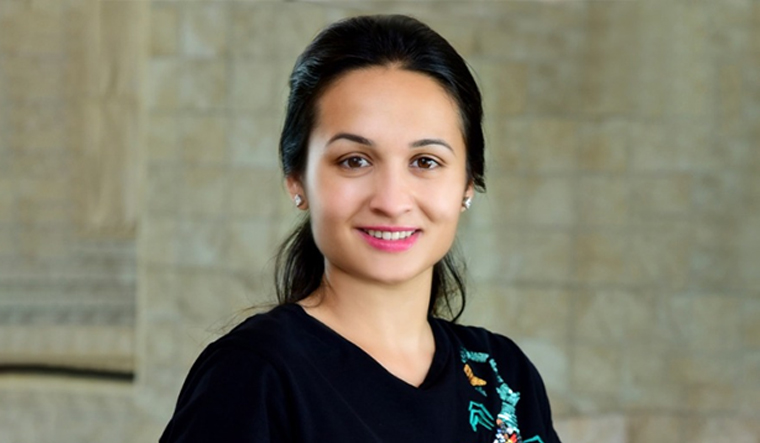“The purpose of education is to make good human beings with skill and expertise…” said Dr. APJ Abdul Kalam.
Education is the foundation for a better tomorrow. It provides us with the opportunity to mould our future and become successful in life. But what about those individuals who have the intent, the ability, and the passion, and yet, have no means to seek, or continue their education?
Meet Mrs Chitralekha N. Patil (Mentor Trustee) - A firm believer that the right to education has a great significance in building a better India and thus, must be addressed at the grassroots level.
An inspiring youth icon in the state of Maharashtra, Chitralekha is a social worker, an educationalist and a political leader, consistently making efforts towards the upliftment of rural India, through the NGO – Centre for Transforming India (CFTI).
How did you start with social work?
I have always felt fortunate to have been able to receive an education and I wish the same for the underprivileged children around me. This is one of the aspects that attracted me towards associating with charities at a very young age.
After having worked in the arena of raising funds for various charities, I realized that our Indian MNCs have the means to fund NGOs and are also willing, but do not have a structured channel to help those in need, to avail it more effectively. Thus, channelizing my passion to make a difference into a movement, I united a few like-minded friends and together, we took up the operations of the Centre for Transforming India (CFTI) in 2014.
Tell us a bit more. What would you say is the driving force for your work at CFTI?
With the aim of bringing opportunities to people in rural India by empowering them through education, healthcare, and economic prospects, CFTI works with the marginalized sections of the society to help raise their standards of living.
One of our objectives is to provide modern educational facilities to the villagers and ensure that the pursuit of education creates a positive impact on the current, as well as the future generations. Through CFTI, we have provided academic scholarships to the economically weak students, right from the primary grade, until their graduation. We also encourage children of quarry labours as well as the tribal people, to enroll their children in schools. And to help them complete their education, we have further supported them with academic kits comprising school bags, uniforms, books, etc.
What got you interested in the sector of education?
Poverty and lack of education has been cited as the top most reasons for child marriages in our country. Not to forget the fact that it also leads to an increase in child labour and domestic violence. I believe that education is the key to a better future! Only when our children, and especially our girl children have access to proper and consistent education, will they be able to design a better future for themselves and their families. More than anything, I believe that change has to start with villages. If the rural population does not have enough opportunities, it will lead to urban crowding and a disproportionate population spread; further aggravating the situation.
Could you elaborate on the initiatives undertaken by CFTI towards the education sector?
Children are the future of tomorrow and in order to build a better future, we must protect them today. Through CFTI, we have been striving to build a better framework for English education in the regions of Konkan/ Maharashtra. We have also awarded scholarships, sports training support, uniform and supplies to encourage the children of the Kolis along with other disadvantaged families, to continue their education.
During the pandemic, a lot of children living in the slum areas have been opting out of schooling; either due to death of the sole breadwinner, or simply due to lack of resources. A lot of migrant labours have also had to turn home due to the struggles of being unable to work in a day’s job. From providing scholarships to setting up community Wi-Fi services, at CFTI, we have been doing everything that we can to ensure that children do not drop out of schooling; and definitely, not due of the lack of a proper infrastructure or resources.
When the children could not come to the schools, we at CFTI made an effort to take the schools to the children. Stepping in to bridge the digital need gap, we are working on an initiative called ‘SCHOOL ON TAB’ that comprises distribution of tabs for online education to 1000+ children in the Dharavi slums. This initiative will be flagged off towards the end of June to provide a head-start to the current academic session across the municipal and government schools in Maharashtra.
Any message for our readers?
If you have the potential to help make a difference, be it in any capacity, do not hesitate. Take the first step and start small. I would like to especially urge the youngsters to collaborate with social causes and work in the field hands-on to bring about a positive change in the society. On behalf of CFTI, I invite you all to join in our efforts, and support our vision. Because inorder to transform the country, one must first transform the villages.
About CFTI:
Centre for Transformation India (CTFI) is a grassroots level non-governmental organization founded in 2014, with a strong network of 700+ grass roots level volunteers connected to the soil working towards transforming rural India.CTFI has undertaken numerous initiatives for the upliftment of villages in Maharashtra by bringing growth opportunities to rural India, through education, healthcare, poverty alleviation, women empowerment, and other sustainable development goals.


